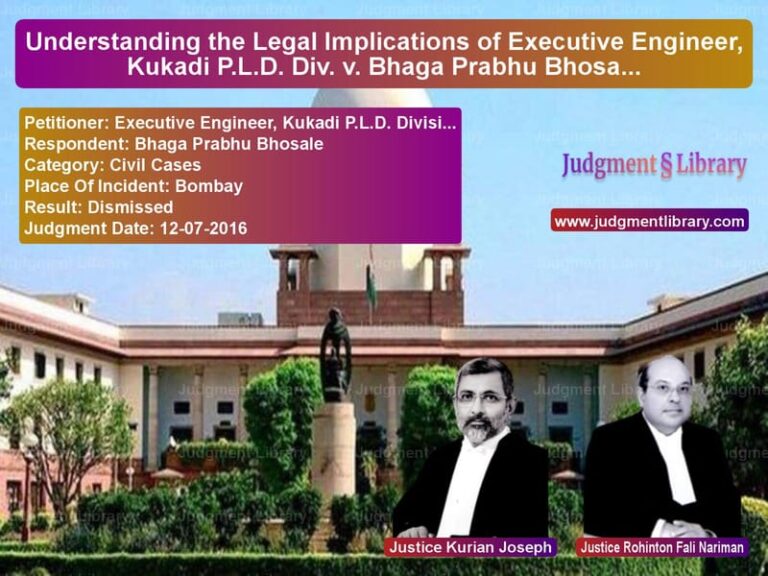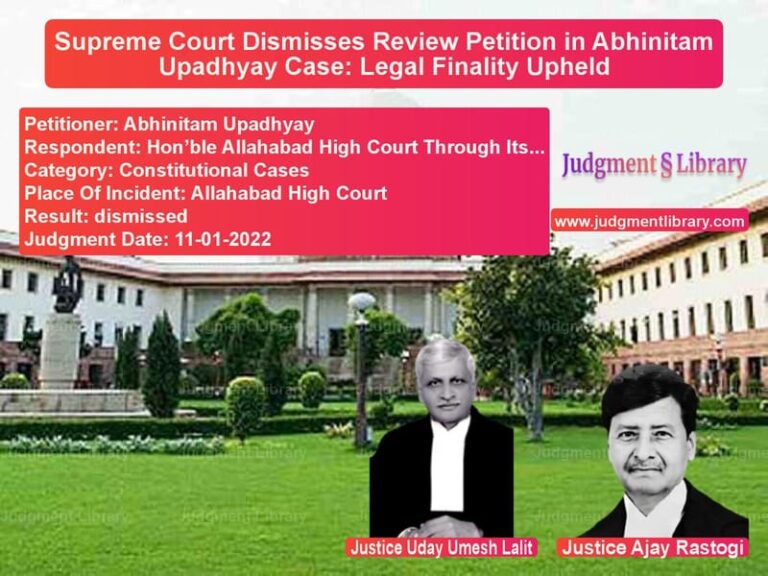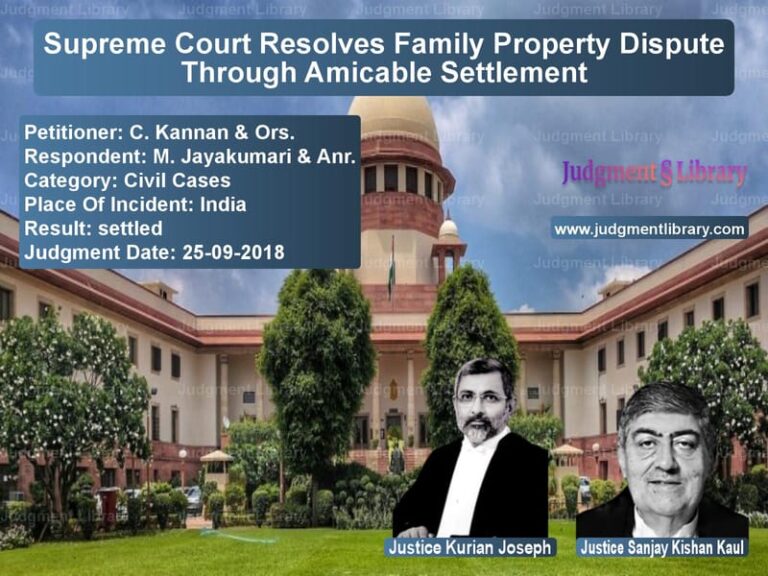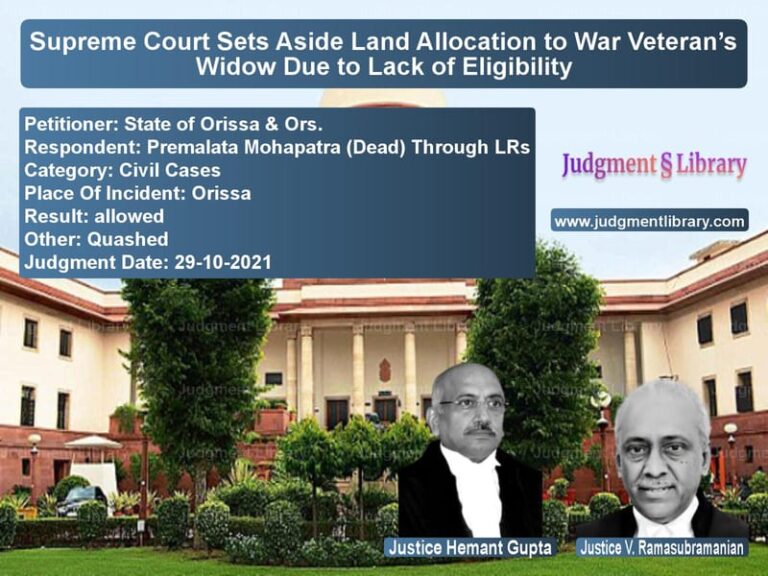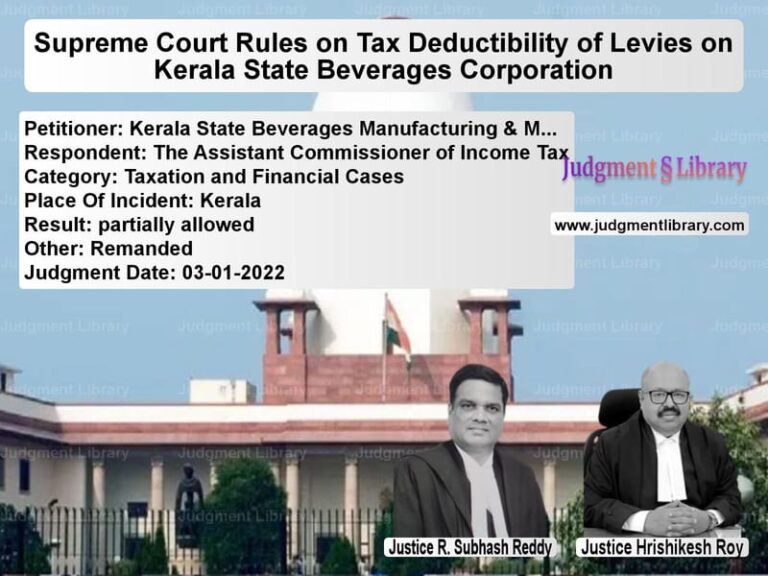Right to Access Inquiry Reports: Supreme Court Rules in Sexual Harassment Case
The case of Nisha Priya Bhatia vs. Ajit Seth & Ors. revolves around a significant legal issue concerning the right of an individual to access inquiry reports related to allegations of sexual harassment. The Supreme Court of India, in this ruling, addressed whether the Union of India could claim privilege over these reports under Sections 123 and 124 of the Evidence Act, 1872, on grounds of national security.
Background of the Case
The appellant, Nisha Priya Bhatia, filed a complaint of sexual harassment against two senior officers, Sunil Uke and Ashok Chaturvedi. Two separate inquiries were conducted into these allegations, with the reports concluding that there was insufficient evidence to take action against the accused. The appellant sought access to these reports, which was denied on the ground that their disclosure would compromise national security.
The appellant then approached the Delhi High Court, filing a contempt petition, alleging non-compliance with an earlier order directing an independent inquiry. The High Court dismissed the contempt petition, holding that the respondents had not violated any court orders. Dissatisfied with this decision, the appellant appealed to the Supreme Court.
Key Legal Issues
- Whether the Union of India could claim privilege under Sections 123 and 124 of the Evidence Act to deny access to the inquiry reports.
- Whether the appellant had a legal right to obtain the reports related to the sexual harassment complaints.
- Whether withholding the reports violated principles of fairness and transparency.
Arguments Presented
Appellant’s Argument:
- The appellant argued that denying her access to the reports violated her fundamental right to seek redress for sexual harassment.
- She contended that the reports did not contain any information related to national security and were being withheld arbitrarily.
- She asserted that the refusal to provide the reports was a deliberate attempt to shield the accused from scrutiny.
Respondent’s Argument:
- The Union of India claimed that the reports were privileged under Sections 123 and 124 of the Evidence Act, as their disclosure would be against national interest.
- It was argued that the appellant belonged to a highly sensitive intelligence organization, and revealing the contents of the reports could compromise national security.
- The respondents maintained that the inquiry reports had already been considered by the disciplinary authority, which found no basis for action against the accused.
Supreme Court’s Analysis
The Supreme Court rejected the claim of privilege over the reports, stating:
- The reports did not contain any sensitive information that could compromise national security.
- The Union of India failed to provide specific reasons why disclosure of the reports would harm the integrity of the country.
- Sexual harassment inquiry reports pertain to personal conduct and workplace discipline, not matters of state security.
- Denying access to these reports would violate principles of natural justice and transparency.
The Court held that merely because an individual belongs to an intelligence organization does not mean that all matters concerning them automatically become classified under the guise of national security.
Final Verdict
The Supreme Court ruled in favor of the appellant:
- The appellant was entitled to receive copies of both inquiry reports.
- The Union of India was directed to provide the missing pages and CDs containing witness depositions within one week.
- The contempt petition against the respondents was dismissed as no willful disobedience of court orders was found.
Key Takeaways
- Access to Inquiry Reports: Individuals have a right to access inquiry reports concerning them, especially in cases of sexual harassment.
- Limits of National Security Claims: Government agencies cannot withhold documents without demonstrating a genuine risk to national security.
- Transparency and Natural Justice: Denial of access to relevant documents in disciplinary matters violates fundamental principles of justice.
- Judicial Oversight: Courts play a crucial role in ensuring that executive privilege is not misused to deny justice.
The ruling sets an important precedent for ensuring accountability in workplace harassment cases, particularly in government institutions where secrecy is often misused to deny justice.
Don’t miss out on the full details! Download the complete judgment in PDF format below and gain valuable insights instantly!
Download Judgment: Nisha Priya Bhatia vs Ajit Seth & Ors. Supreme Court of India Judgment Dated 06-05-2016-1741860718158.pdf
Direct Downlaod Judgment: Direct downlaod this Judgment
See all petitions in Workplace Harassment
See all petitions in Public Sector Employees
See all petitions in Disciplinary Proceedings
See all petitions in Judgment by Madan B. Lokur
See all petitions in Judgment by N.V. Ramana
See all petitions in partially allowed
See all petitions in Modified
See all petitions in supreme court of India judgments May 2016
See all petitions in 2016 judgments
See all posts in Service Matters Category
See all allowed petitions in Service Matters Category
See all Dismissed petitions in Service Matters Category
See all partially allowed petitions in Service Matters Category


